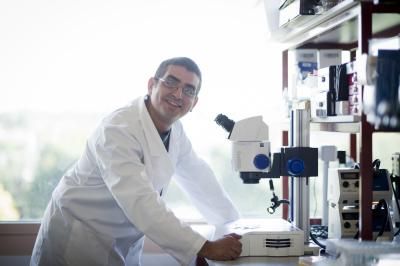Cancer Research Center to Investigate Chemokine Therapeutics' Compound CTCE-0214 in Repopulating Blood Stem Cells
Chemokine Therapeutics Corp. announced that it has entered into an agreement with Fred Hutchinson Cancer Research Center in Seattle to study the Company's hematological support compound, CTCE-0214. Researchers at the Hutchinson Center will study the benefits of CTCE-0214, an agonist of the chemokine receptor CXCR4, in a series of preclinical studies investigating the drug's ability to accelerate the repopulation of stem cells to the bone marrow from human umbilical cord blood. In addition to determining the quantity of stem cell expansion, the researchers will also examine the level of engraftment of these cells in pre-clinical transplant model. The planned studies would further establish the effects of the addition of CTCE-0214 to the currently available techniques and explore the potential use in a future human clinical setting.
CTCE-0214 is a stable peptide analog of stromal cell-derived factor-1 (SDF-1) and an agonist of the SDF-1 receptor called CXCR4, a key signaling protein in the proliferation, homing, engraftment and expansion of hematopoietic stem cells and white blood cells. SDF-1 is also believed to work as a traffic controller for infection-fighting white blood cell and progenitor cell migration providing an essential function to combat immunosuppression. CTCE-0214, based on Chemokine's preclinical research, mimics the activity of the natural chemokine SDF-1 by increasing the level of white blood cells (neutrophils), bleeding prevention cells (platelets) and stem cells (primitive blood forming cells) in the blood. The Company recently announced the completion of the first of its Phase I clinical trial tests. The Company confirmed that the positive safety profile and efficacy results from the Phase I trial of CTCE-0214 warranted the accelerated development of the product. Ongoing trials are designed to test the safety and efficacy of CTCE-0214 for stimulating rapid mobilization and regeneration of infection-fighting white blood cells and other cells of hematopoietic (blood) origin. Low blood counts compromise the infection-fighting ability of patients undergoing chemotherapy. Further, CTCE-0214 may also be useful for applications in regenerative medicine as the compound has been shown to increase the growth, multiplicity, maturity and life span of stem cells.
Most read news
Topics
Organizations
Other news from the department research and development

Get the life science industry in your inbox
By submitting this form you agree that LUMITOS AG will send you the newsletter(s) selected above by email. Your data will not be passed on to third parties. Your data will be stored and processed in accordance with our data protection regulations. LUMITOS may contact you by email for the purpose of advertising or market and opinion surveys. You can revoke your consent at any time without giving reasons to LUMITOS AG, Ernst-Augustin-Str. 2, 12489 Berlin, Germany or by e-mail at revoke@lumitos.com with effect for the future. In addition, each email contains a link to unsubscribe from the corresponding newsletter.





















































